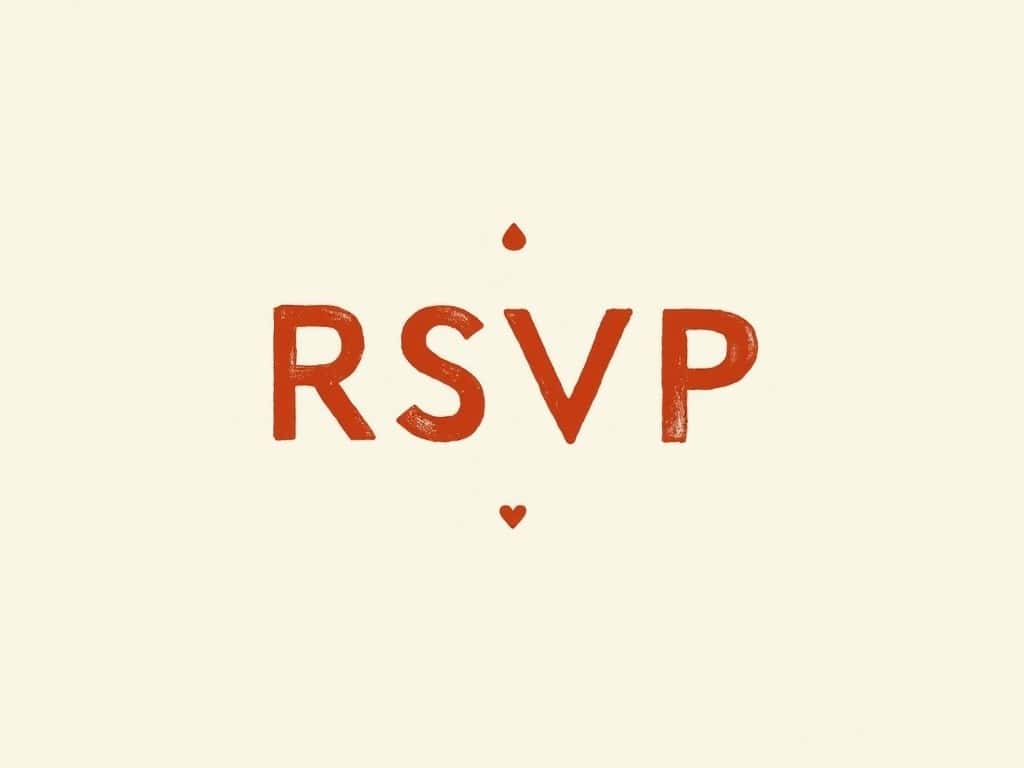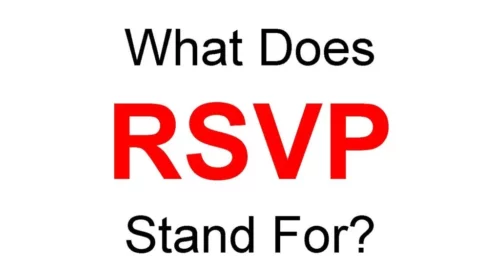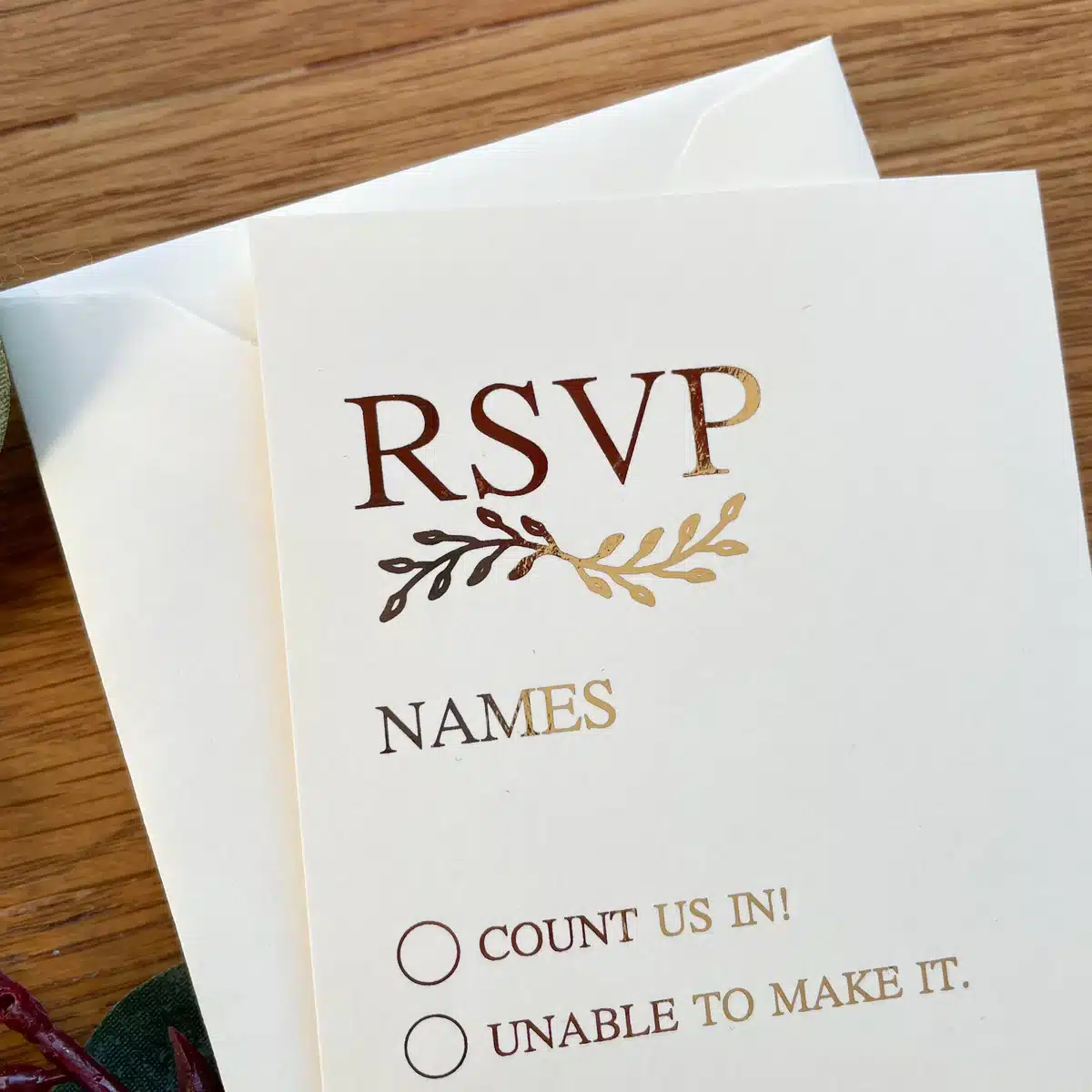Have you ever received an invitation with those four mysterious letters at the bottom – RSVP? Whether it’s for a wedding, a birthday bash, or a corporate event, RSVP is a staple in the world of invitations. But what does RSVP mean, and why is it so important? Let’s dive into the world of this crucial social acronym and uncover its secrets!
What Does RSVP Stand For?
RSVP is an abbreviation of the French phrase “Répondez s’il vous plaît,” which translates to “Please respond” in English. It’s a polite way of asking invitees to confirm whether they’ll be attending an event or not.
The term has been around since the 11th century, originating from the French royal court. It made its way into English in the 19th century and has been a cornerstone of social etiquette ever since. Talk about staying power!
Common Uses of RSVP

RSVP isn’t just for fancy galas and royal weddings. You’ll find it popping up in all sorts of invitations:
- Formal events: Weddings, charity galas, award ceremonies
- Casual gatherings: Birthday parties, housewarming events, backyard BBQs
- Business functions: Conferences, seminars, networking events
- Online meetups: Virtual parties, webinars, live-streamed events
No matter the occasion, that little RSVP is there to help hosts plan and guests respond.
RSVP in Text and Chat
In our digital age, RSVP has adapted to the world of texting and instant messaging. You might see it written in various ways:
- RSVP (all caps, most common)
- rsvp (lowercase, for a more casual vibe)
- R.S.V.P. (with periods, old-school style)
In text and chat, RSVP has taken on a life of its own. It’s not just about responding to invitations anymore. People use it as a general request for a reply:
“Hey, did you see that new superhero movie? RSVP!”
RSVP in Social Media

Social media platforms have put their own spin on the RSVP concept:
- Facebook events: “Going,” “Interested,” or “Can’t Go” options
- Twitter and Instagram: Event announcements with hashtags like #RSVP or #LetMeKnow
- LinkedIn: Professional event invitations with RSVP buttons
Pro tip: Even if you’ve clicked “Going” on a Facebook event, it’s still polite to RSVP directly to the host for more formal occasions.
RSVP Etiquette: The Do’s and Don’ts

When to Respond
- Do: Aim to respond within a week of receiving the invitation.
- Don’t: Wait until the last minute. Your host isn’t a mind reader!
How to Respond
- For formal events: “Mr. and Mrs. Smith graciously accept/regretfully decline”
- For casual gatherings: “Count me in!” or “Sorry, can’t make it this time”
Remember, even if you can’t attend, always RSVP.
What to Include in Your Response
- Your name (and any plus-ones, if invited)
- Whether you’re attending or not
- Any dietary restrictions (if it’s a meal event)
Pro tip: If the invitation says “RSVP regrets only,” only respond if you can’t attend.
Digital RSVP Tools: RSVPing in the 21st Century
- Event Management Platforms: Eventbrite, Meetup
- Wedding Websites: Built-in RSVP features
- Email RSVP Systems: One-click responses
RSVP in Different Cultures: A Global Perspective
- United States: RSVPs taken seriously, not responding considered rude
- Japan: “Ookini” concept similar to RSVP
- India: RSVPs used, but guests may show up without responding
- Brazil: More relaxed approach, verbal confirmations often enough
Common Misunderstandings about RSVP
- Regrets only” means you only respond if you can’t attend
- RSVP doesn’t mean you can bring extra guests
- RSVPing “yes” and not showing up is a major faux pas
RSVP Alternatives: Mixing It Up
- “Please respond by [date]”
- “Kindly reply”
- “Your response is appreciated”
- “Let us know if you can make it”
RSVP in Professional Settings: Keeping It Classy
- Business Meetings and Conferences: Respond promptly, include full name and company
- Networking Events: RSVP even if not required
- Professional Development Seminars: Confirm any pre-work needed
The Future of RSVP: What’s Next?
- AI-powered RSVP systems
- Augmented Reality invitations
- Integration with smart home devices
- Blockchain for secure event ticketing
RSVP FAQs: Your Burning Questions Answered
Q: What if I RSVP’d yes but can no longer attend?
A: Contact the host ASAP and apologize.
Q: Can I bring a plus-one if the invitation doesn’t specify?
A: Generally, no. If in doubt, ask the host directly.
Q: Is it okay to RSVP via text message?
A: For casual events, sure. For formal occasions, stick to the method specified in the invitation.
Q: What does “RSVP, regrets only” mean?
A: Only respond if you can’t attend. No response indicates you’ll be there.
Conclusion: The Timeless Importance of RSVP
From its royal French origins to modern digital adaptations, RSVP has stood the test of time. It’s more than just four letters – it’s a symbol of respect, consideration, and social grace.
Whether you’re responding to a wedding invitation or a casual hangout, remember that your RSVP matters. It helps hosts plan, shows you value their effort, and keeps the wheels of social interaction running smoothly.
So next time you see those four magical letters, you’ll know exactly what to do. RSVP like a pro, and watch your social stock soar!
Related Slang Terms
- TBA (To Be Announced)
- BYOB (Bring Your Own Bottle/Beverage)
- POC (Person of Contact)
- ETA (Estimated Time of Arrival)
- FOMO (Fear of Missing Out)
Remember, in the world of social events, RSVP is your ticket to being a considerate guest and a stellar host. So go forth and RSVP with confidence – your social calendar (and your hosts) will thank you!







